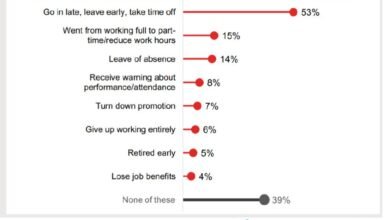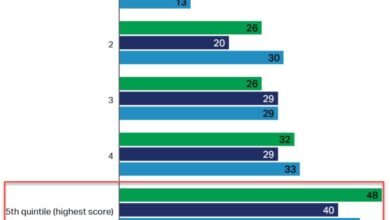
By | Dave Ulrich | Speaker, Author, Professor, Thought Partner on HR, Leadership, and Organization
I am confused by the current comingled crises: global pandemic, racial strife, and economic downturn.
On the one hand, I see social gatherings as if nothing is wrong (beach-going, playing sports, eating in restaurants, encouraging return to schools); on the other hand, I see increased numbers infected by the coronavirus and more concern with social sheltering. On the one hand, I see protests to denounce racial inequality and calls for social justice; on the other hand, these protests sometimes turn into mobocracy and destroy property in our local community, or a dance party in the streets. On the one hand, I visit with colleagues whose industries and firms are devastated and downsized; on the other hand, some of my colleagues cannot move quickly enough to grow into new market opportunities: unemployment is high and so is the stock market.
How do I begin to make sense of this crazy-ness?
I am in the idea business where I try to observe the world, do research, and offer insights that may have positive impact for individuals, leaders, and organizations. But, lately, when I am asked to give advice to business and HR leaders about how to respond to, or at least make sense of, this peculiar time, it is not always clear what to suggest since many of my mental models seem insufficient. Let me explore some emerging alterative thoughts.
1. Be granular. Broad sweeping (e.g., “new normal”) truisms simply don’t work and offer false hope leading to cynicism. Granularity applies to individuals as people have very different opportunities and demands in these turbulent times. Granularity applies to time as there can be long term aspirations, but the pace of change requires short term quick responses that can be quickly implemented. Granularity applies to solutions as there may be “small nudges” with lots of experimentation and learning.
Advice question: Am I aware of (sensitive to) the unique circumstances affecting the people and organizations where I work?
2. Begin with emotion, not logic. A close friend in the middle of a bitter dispute kept trying to make logical arguments for how to proceed. He finally concluded that some disagreements are less about logical blueprints and more about emotional sensitivity. Pat Wright recently shared evidence of higher rates of stress, anxiety, and depression risk with the crises. The pandemic malaise that affects many of us is not solved with logical blueprints, but empathy over logic, hearing over listening and caring over changing.
Am I sensitive to the emotional demands of this setting?
3. Rely on social networks. Broad societal issues are often dealt with in small communities where personal social networks provide both tight ties of those who can support me and loose ties of those I can learn from. In the last week, I have shared personal time with five close long-term friends. We had each been sheltered (all older), but it was wonderful to have a social network I can turn to for support and ideas. Business and HR leaders need to invest in micro-social communities where they feel supported (e.g., teammates, colleagues). They also need to seek out loose ties of those they can learn from who may not have been in their network (e.g., peers in other companies).
Who can I turn to for my social support and new ideas?
4. Recognize and act on my values. I have quoted this before (from Wayne Brockbank): under pressure, some rocks become dust and others diamonds. Under pressure, some people seem to discover new opportunities and others seem to deteriorate from the threats. The difference is often from being clear about one’s values. Being sheltered, facing personal biases, and experiencing a new economic order can be a time to reflect and prioritize. Answering (and re-re-re answering) the question, “What do I want most?” becomes a key to abundant living in a turbulent world because it defines success, focuses energy, and ensures personal peace in the midst of external chaos. A friend gave up a major new leadership opportunity at a not-for-profit to spend time homeschooling her two children. A sacrifice? Or a blessing? It depends on her values.
What do I want most based on my deepest values?
5. Focus on the process, not a solution. When solutions are moving targets that change with the latest contextual jolts, leaders should attend even more to the process. Should a business focus on growth or cost? Should a school offer in-person classes or only virtual? The solution to such difficult questions is sometimes less stable than the process. Leaders gain credibility not by being bombastic and declaring solutions, but by being transparent about the process whereby they make decisions. When employees understand and trust the process, they will more likely adapt to and appreciate the solution. A thoughtful leader recently drafted an important policy change, then shared it with a small trusted group to make comments without trying to please him. He then reviewed their comments and made the final decision. He did not shy away from his ultimate accountability, but he created a clear and shared process for engaging others. Managing the process for how decisions are made in times of unpredictable change may help employees have more confidence in the decisions even when they change unexpectedly.
How can I manage an open and fair process for making decisions?
6. Be mindful: Enjoy the journey, laugh, and discover. A great leader once advised: “Let us run with patience the race that is set before us”. I will always remember a time when we were first married. We picked buckets of cherries, pitted them, and boiled a huge vat of cherry juice to make cherry fruit leather. Then, I dropped the gallons of cherry juice and it completely decimated our entire kitchen (and most of our small apartment). The hours spent preparing the food would now be doubled cleaning the nooks and crannies of cherry juice. We looked at each other … and we laughed! Hopefully, mindfulness skills (intentionality, conscious breathing, and meditation) will help us pause, center, and savor the moment.
Am I mindful of the changing world so that I am patient with myself and others?
As many have said, no one can control what happens, but one can control the response to what happens.
Perhaps, I can advise myself (and others) to be granular, emotionally grounded, social connected, value-based, process-oriented, and mindful as I try to make sense of this confusing world.
What other advice would you give yourself and others?
Republished with permission and originally published at Dave Ulrich’s LinkedIn






